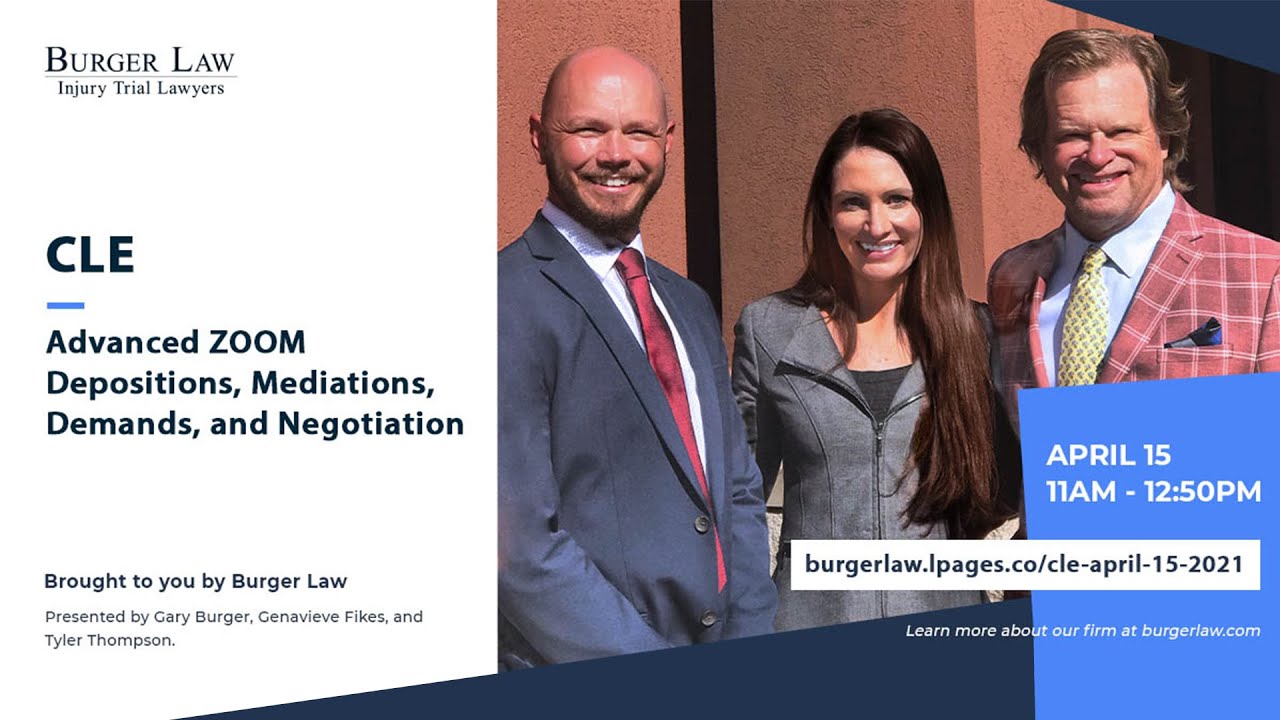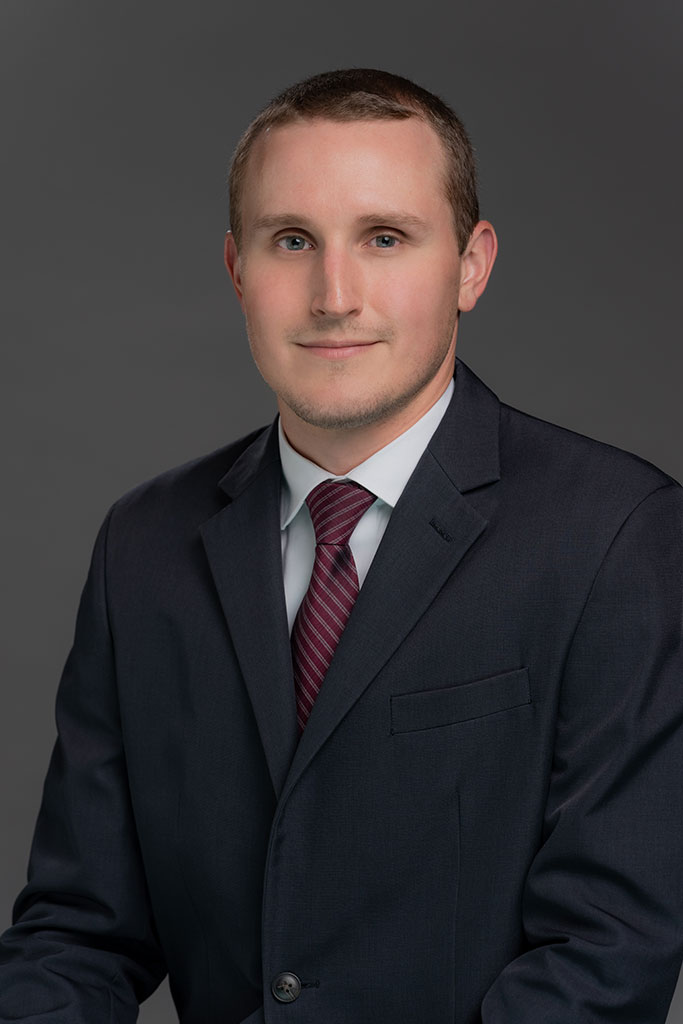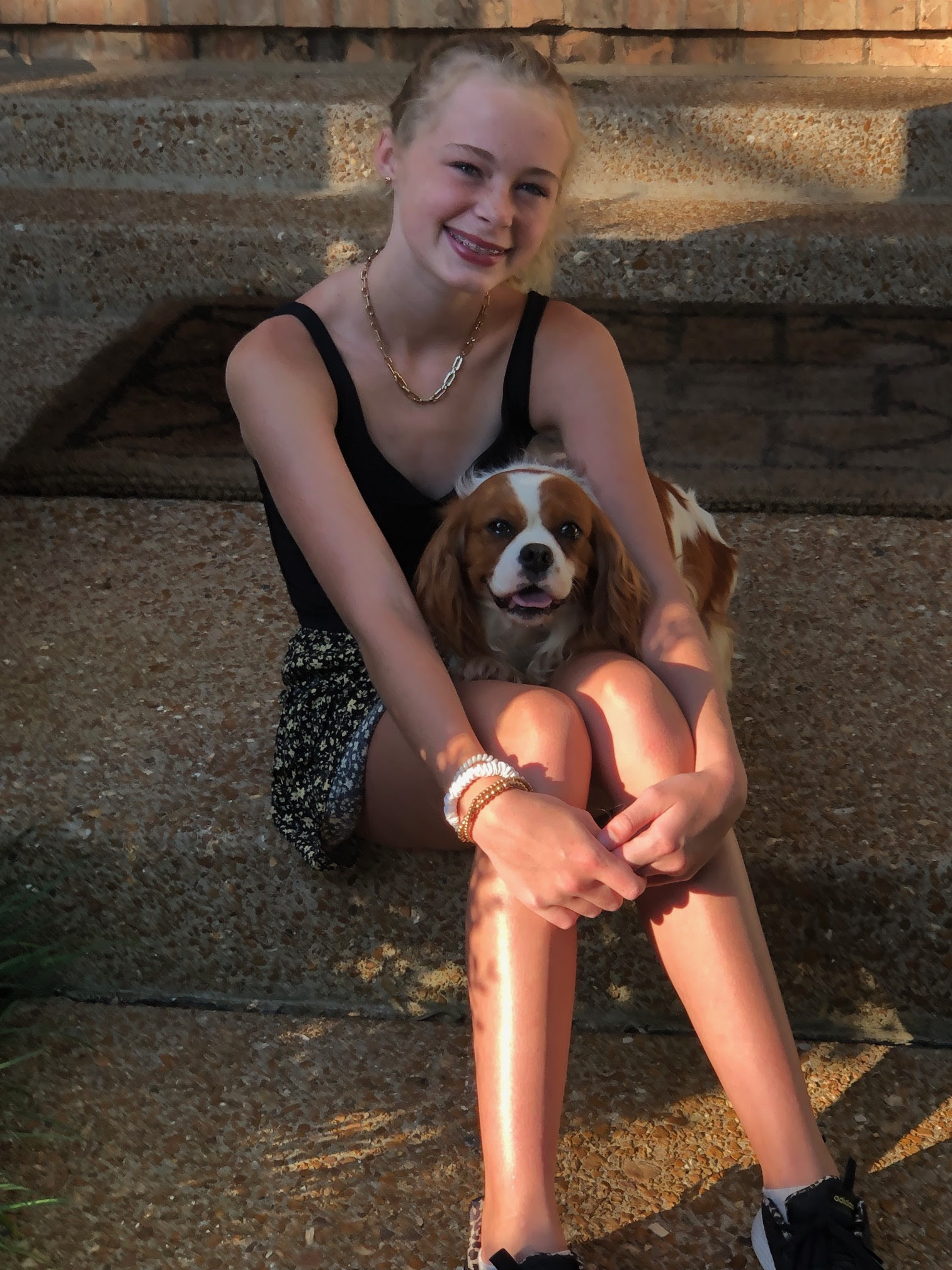Free Consultation
314-542-2222100+ years of combined experience and over $200 million won for our clients in Missouri and Illinois. Contact a personal injury lawyer near you.
Free Consultation
314-542-2222Every personal injury claim is unique, but hearing others' stories can help you understand what to expect. Burger Law offers a new collection of our previous clients' stories and how we were able to help.

Well, the year is flying by – I have been so busy, I have not emailed one of these in a month. Seems like I am jumping from depo to depo and mediations. But our hard work does pay off.
Remember I talked about the story of deposing a construction company "safety" representative? The company's driver went across the center line, crashed into my client's car, and killed him and his passenger. Well, happy to report we settled the case for $2.5 Million last week.
Below, I have an article on how to do Zoom depos from our CLE a couple weeks ago and a Save the Date for our upcoming CLE.
But first, as a lawyer, what do you want to hear about or learn in a CLE? I really am interested in what other lawyers want to learn. Call me at [dynamic-phone-number] to let me know and we will see if we can do it.
This weekend, I got a text from a friend that his neighbor had a bee swarm in the front yard. It was fun to go and collect the swarm and see if these bees will make it in a hive in my yard. I put the bees in a box and hope they will prosper. Bees swarm like that to reproduce and to start a new hive.

Lawyers who are used to doing depositions in person should not let this new paradigm of Zoom constrain them, instead, they should double down on it.
Covid-19 may have started a new wave for how depositions and mediations will be done in the future and new and old lawyers should get used to them being executed via Zoom.
Lawyers who are new to Zoom depositions and mediations should practice a few times and remember perfection is not necessary. You should consider this new concept with an open mind and eventually you may find it fun, a time-saver, and different in a good way.
I have personally conducted around 25 mediations and well over 50 depositions if not more since the pandemic began and my office has done even more. From personal experience over the last year, I have concluded that Zoom Depositions are better. Why?
Zoom allows you to share the screen with exhibits and allows you to enlarge language effectively. However, it is important to have your exhibits ready to present. Do not open or try to find where they are saved for the first time during the deposition.
A helpful tip is to name the files to the exhibit number, for example, 1-photo, 2- police report – this will help you access the document you are referring to quickly. It is also helpful to share the google file with the opponent of all the exhibits the day before.
A trick I found helpful is you can also create a new exhibit during the deposition and can google relevant information and turn them into exhibits while attending the deposition. Zoom also allows you to be able to have exhibits to show doctor's medical records during depositions so they do not have to find theirs. Lastly, it is important to be familiar with the documents produced by the defendant so you can be prepared to use them.
Further, doing depositions on Zoom makes you have all exhibits in a Google folder which is easy to provide to the court reporter. This process also makes it more convenient to share the folder with remote staff and other lawyers who may be working on the case with you.
Another helpful tip I have come across through my experience is you can highlight PDFs of documents with stuff you would like to use in the deposition.
The two ways that I use are: (1) having two separate copies of an exhibit – one clean and one with highlights. The advantage is to not signal the other side what you are going to use. (2) One copy of the exhibit pre-highlighted which gives you a signal of key things to focus on.
It can also be useful to pull other documents from the defendant’s production and show them to the witness by screen share. Remember – this document is not required to be an exhibit at first you can show photos and documents to see what the witness knows and what the good documents are and then mark them as an exhibit.
In the past, I have used my Sony Handycam to record depositions, however Zoom recording is absolutely great. I find it better because it identifies to the witness that they are being recorded. After all, they are looking at their face on a big screen right in front of them ensuring that they know exactly what is being recorded.
From experience, I have found that witnesses tend to give me more information when doing a Zoom deposition. For example, I have had many defendants admit liability in crash cases and policy violations in other cases.
This process also can make witnesses look bad when they are lying or playing games and you can see it in real-time on your screen. Remember to be careful about your facial expressions because you are being recorded as well.
One trick I find helpful is having my deposition notes in a word document in front of me and then minimizing the Zoom screen. You can get even more creative by using a Google doc shared with co-counsel or paralegals for them to suggest questions for you.
This can also work with other useful documents in front of you which allows you to use them for language and not tell the other side or deponent what you are doing and later share or never share that document.
Zoom depositions and mediations do come with problems. Often someone is on mute and they do not realize this and are talking. Also, the poor wireless connection can arise at any time. One thing I have learned to avoid issues is prepping my clients on Zoom as a test run at least the day before and not letting the first time they get on Zoom and answer questions be at the deposition.
People may have the understanding that they are just on Zoom and do not take it as seriously; this is important to be dealt with in preparation. Zoom requires more deposition preparation. Also, if we are using notes, a Deponent may be using notes. Also, lawyers have the ability to text clients in depositions to take a break.
Thanks. Next email I will share Zoom Mediation tips.
I hope everyone enjoyed their long weekend – I sure did. I spent some time thinking about the ultimate price our American soldiers paid on the battlefield.
Here’s one powerful story I read about a Navy Seal and Medal of Honor recipient.
Below I welcome our newest attorney to Burger Law and discuss a recent OSI products liability discovery dispute we had. But first I want to remind you of our upcoming CLE later this month.
Want to:
Burger Law is hosting a virtual Zoom CLE on June 8. As usual, we will have nuts and bolts presentations with robust written materials. Debbie Champion and Gary Burger talk with Brent Sumner about High Exposure Litigation. As part of our Lawyervlawyer podcast series, learn what to do and not do when a lot of $$ is on the line. Brent and Ben Sansone recently had an amazing and hard-fought success. Latasha Barnes of LSEM will teach us how to identify personal and institutional biases and address the discomfort that can arise with discussions of race and ethnicity in the law.
All materials are available here: CLE.
Gary and Burger Law were featured again in the latest edition of Missouri Lawyers Weekly! We as a firm are so proud that we were able to get our client such an excellent settlement after extensive trauma, treatments, and complications she and her family experienced.
We will be adding this one to our wall so we can be continuously reminded of why we work as hard as we do.

Burger Law would like to welcome our newest Attorney, Michael Franklin Sheldon! Michael was born in New Jersey and raised in Bloomington, Illinois. He graduated in 2018 with a Bachelor's Degree in Legal Studies from Illinois State University. While attending ISU Michael participated in Mock Trial to gain valuable experience in the Legal field. He also interned at a criminal defense firm and corporate law department of a great insurance company.
Michael's undergrad studies led him to have a passion for the law which continued when he began law school at St. Louis University School of Law, where he graduated a half semester early in December 2020 with Honors in the middle of a pandemic.
While attending SLU Law, Michael gained valuable experience by being a member of SLU Law Journal and taking practical courses in Transactional Drafting and Law Practice Management. He also was a law clerk at Burger Law and another well-known firm during his law school studies.
During his 3L year Michael led his Law School Softball team to the playoffs as a star Center Fielder making multiple acrobatic catches with a beer in one hand. Michael enjoys spending his free time outdoors playing sports such as golf and baseball. He also enjoys camping, hiking, kayaking and attending sporting events during his spare time. When the Missouri winters kick in, Michael enjoys spending time with his two cats and dog and playing guitar.
We are excited and looking forward to welcoming Michael to the Burger Law family as an attorney and are excited for his future at Burger Law.
We had a big discovery dispute last week in a products liability case and the Court granted our Motion to Compel.
We have a robust products liability practice. We settled a steam cooker explosion case last year that I have written about. We have a current case against an international medical device manufacturer regarding a knee implant which failed far too early.
Total Knee Arthroscopy should last 15 to 20 years and my clients lasted 4.5 and he had problems for a couple years before it was removed. We alleged the polyethylene insert wore out and failed too quickly. It is like buying a 40,000-mile tire to have it wear out in a few thousand miles.
Other Similar Incidents (OSI) are very important discoveries in product liability cases. Recently we had a discovery dispute regarding the defendant's objections to discovery of OSI.
Under the standard used in Missouri, Plaintiffs are entitled to discovery of OSIs involving products substantially similar to the product used on the client.
Evidence regarding other similar incidents "may be relevant to prove the defendant’s notice of defects, the defendant’s ability to correct known defects, the magnitude of the danger, the product’s lack of safety for intended uses, or causation.” Adams v. Toyota Motor Corp., 867 F.3d 903, 911 (8th Cir. 2017), as corrected (Aug. 14, 2017).
There is “no black letter rule of law” regarding such discovery disputes in products liability cases, “other than to state that discovery of similar, if not identical, models is generally permitted.” Hofer v. Mack Trucks, Inc., 981 F.2d 377, 380–81 (8th Cir. 1992).
“Generally, different models of a product will be relevant if they share with the accident causing model those characteristics pertinent to the legal issues raised in the litigation.” Fine v. Facet Aerospace Products Co., 133 F.R.D. 439, 441 (S.D.N.Y. 1990) (cited by Hofer).
“On the other hand, discovery has been denied where the predecessor models did not share pertinent characteristics with the products at issue.” Hofer v. Mack Trucks, Inc., 981 F.2d at 381. Thus, “the courts have undertaken a fact specific determination of the extent of the similarities or dissimilarities, and have inquired about the basis for the discovery request.” Id.
After applying the relevant case law in our case, the Court held we were entitled to the requested written discovery regarding OSI to the extent the other incident involved a similar artificial knee device, regardless of the defendant's claim that their other knee devices differed greatly from the one implanted in our client.
The court allowed OSI discovery because the defendant conceded that all models of its artificial knee devices contain the same polyethylene that was defective in our client. We got the defendant to make this valuable admission during the deposition of its corporate representative. Further, the defendant in our situation did not assert or explain why any differences in its knee device would affect the defective polyethylene.
In Mt. Carmel Mut. Ins. Ass’n v. CNH Am., L.L.C., No. C12-4112-DEO, 2014 WL 6775593, at *4 (N.D. Iowa Dec. 2, 2014), the court held that granting a motion to compel regarding other similar incidents involving different models of a combine than the one owned by plaintiff where the plaintiff’s product liability claim alleged a defect arising from material used to construct the combine’s fuel tank and “[w]hile the shape and location of the fuel tanks may have changed, it appear[ed] that the material used to construct those tanks ha[d] been largely unchanged” over the various combine models).
Though evidence of those OSIs may not be admissible at trial if the defendant can provide evidence that the OSIs are in fact not substantially similar to our client's incident. However, such analysis cannot take place until the related discovery is produced. See McMahon v. Robert Bosch Tool Corp., No. 4:18-CV-583 CAS, 2019 WL 4141027, at *3 (E.D. Mo. Aug. 30, 2019) (“There is a significant distinction between whether evidence of similar incidents is admissible and whether it is discoverable.”).
The Court granted our Motion to Compel the defendant to provide our client the requested written discovery regarding its other similar knee devices. We will use the OSIs to counter the defendant's proclaimed defense that its knee devices have a low failure rate. We hope this big discovery victory is a step towards a great outcome for our client.
Hope you enjoy your weekend.
Below, I discuss the Missouri Supreme Court decision in Hootselle v. Mo. Dept. Corrections and another in the news article. But, as the decision to send the case back to the trial court for another trial is a little bitter, let's start with some honey – 120 pounds of it.

The Missouri Supreme Court affirmed in part and vacated in part the trial court’s judgment in this case – and remanded it back to the state court for a new trial. Hootselle v. Missouri Department of Corrections, 624 S.W.3d 123 (Mo. banc 2021).
This was a unanimous decision of all six Judges handed down June 1, 2021. The case was transferred from the Supreme court back to the trial court. We appeared before our new judge and set the trial of the case June 11, 2022 in Cole County Circuit Court.
Although we obviously do not agree with the reversal of the money verdict, we and our clients remain unbowed and ready to win the case again in our second trial. The Supreme Court Judges put a lot of work and thought into their decision.
And there are a lot of pretty significant victories affirmed by the Supreme Court in the remand. These are not silver linings – but rather first of their kind wins in Missouri.
The Supreme Court affirmed that:
The defendant opposed certification by arguing that the Correctional Officers failed to demonstrate that common issues predominated because they worked at a variety of facilities where the time spent on pre- and post-shift activities differed to some extent.
The trial court rejected the defendant’s argument because Correctional Officers performed virtually identical pre- and post-shift activities which began and ended their workdays at all prisons and their employment was governed by the same contract and department policies.
As a consequence, the question of defendant’s liability to all Correctional Officers would be determined based on those documents and the same legal theories. The fact that individuals’ damages recoveries might differ did not preclude finding predominance. Hootselle, 624 S.W.3d at 132.
Unlike the plaintiffs in Nuñez, the corrections officers do not claim the state has waived sovereign immunity for claims arising under the FLSA. Their counts alleging causes of action under the FLSA have been dismissed. The corrections officers and MDOC negotiated labor agreements that expressly incorporated MDOC’s FLSA obligations. The corrections officers are suing for breach of those labor agreements. They are alleging state-law breach of contract claims, not freestanding claims for violations of the FLSA as the Nuñez plaintiffs sought to do.
Breach of contract claims may be maintained against the state to enforce an express contract even when that contract incorporates statutory obligations. Dierkes v. Blue Cross & Blue Shield of Mo., 991 S.W.2d 662, 668 (Mo. banc 1999). The state waives sovereign immunity when it enters into an express contract. Kubley v. Brooks, 141 S.W.3d 21, 28 (Mo. banc 2004). Therefore, the corrections officers’ breach of contract counts seeking to enforce against the state an express contract with terms that incorporate FLSA obligations do not circumvent the FLSA and do not implicate the state’s sovereign immunity. The corrections officers can maintain claims against the state for breach of an express contract even though the contract incorporates obligations imposed by the FLSA.
We will go forward to trial to again prove our damages. We hope to get a large recovery for the really large loss the corrections officers have and continue to suffer. Stay tuned.
Gary and Burger Law were featured again in the latest edition of Missouri Lawyers Weekly.
We as a firm are so proud that we were able to get our client such an excellent settlement in such a sad wrongful death case.
Kids are back at school and summer seems over. I do not know if I am ready - it seems to have creeped up on me. I am driving kids to school, organizing fall activities and looking at the remainder of the year. And navigating COVID (not over or even close) and what is the new normal. But it’s all good – The more things change, the more they stay the same.
This happens to be one of my favorite quotes – it’s coined by some French dude – but I know it from the Rush song, Circumstances.
Below, I discuss more of the same – How we took a case from 0 offer to a $407,000 verdict and judgment – which we have now collected. Then, I have a really hilarious article my daughter wrote appropriately called: Top 10 reasons YOU should make your children work at your office. Enjoy (And let us know if you have a legal claim in which you need our help. Call us at [dynamic-phone-number] anytime).

Every state is a sovereign. Every state waives its sovereign immunity on its own terms. In Illinois, the only way to sue a sovereign is under the Illinois Tort Claims Act. 705 ILCS 505/
We represented JD Walker, a Nashville, Tennessee musician and truck driver because he was injured in Illinois while driving a route from Tennessee to Kansas City. The case has a lot of twists and turns and is a crazy story.
On February 24, 2016, JD was driving an 18-wheel truck on northbound Interstate 57 near Mt. Vernon, Illinois. As he approached the overpass supporting State Route 15, snow and ice being plowed off the overpass onto I-57 below crashed into his truck causing him to lose control.
The ice destroyed his windshield and mirrors of his truck and came into the cab. His GPS and ice hit his face, he felt rumble strips on the median side – and steered to the right – his back trailer came off the ground and was about to tip – he controlled it all and came to a safe stop and did not hit other cars.
He couldn’t see and stopped his truck that way – pretty incredible. He knew and saw that it was an Illinois Department of Transportation ("IDOT") plow.
He reported to the state trooper who came to the scene that snow and ice was pushed over the State Route 15 overpass by an IDOT snow plow.
IDOT never admitted it was their truck – to this day. But JD was injured and couldn’t catch the plow – he was smart enough to give a detailed report to the officer.
It was a zero-offer case and there has never been any money offered to settle the case in any way. So, we filed the Illinois Court of Claims action, tried the lawsuit, and won. We also won it before the Illinois Court of Claims.
We got JD a recovery of $407,000 in an opinion earlier this year and received the settlement check this week. JD injured his neck from the whiplash of the ice and snow. He was diagnosed with a herniated disk in his neck and had neck surgery.
He received his workers’ compensation benefits in Tennessee. But he needed a civil lawyer for this claim in Illinois and turned to us.
The State of Illinois asserted we could not prove it was their truck. But we noted that the law is well established that the State owes a duty to maintain its roads and highways in a reasonably safe condition. See Smith v. State, 42 Ill. Ct. Cl. 19 (1990), and that §6.200.7.1 of the IDOT Snow and Ice Control Manual for Districts 2-9 provides, "Plowing speed shall be reduced to prevent throwing snow over bridge parapets... "
This duty of care was further supported by IDOT District 9 Bureau Chief Miley, who admitted to me that employees are instructed and trained so as to not plow snow and ice over the parapets of bridges. Thus, Respondent owed Claimant a duty to plow the snow on the State Route 15 overpass in a reasonably safe manner. We won this issue – the court said:
Based upon a totality of the evidence presented in this case, the opposite conclusion is reached. The evidence at trial shows that Claimant identified the snowplow as being orange. IDOT District Bureau Chief Miley testified that all IDOT snowplows are orange. While it is acknowledged that non-IDOT snowplows may also be orange, it is undisputed that all IDOT snowplows are orange. Miley also testified that IDOT had jurisdiction over State Route 15, including the responsibility to plow snow. Respondent speculates that it is possible that another unknown entity or private company was plowing State Route 15 on the date in question but there is no evidence to support this conjecture. The only fact that Respondent relies on is that the Claimant testified that he could not see IDOT markings on the side of the truck. Despite this one detail the totality of all direct and circumstantial evidence leads to the finding that the snowplow at issue in this case was an IDOT snowplow. The testimony of Claimant is undisputed that the snowplow threw snow off of the State Route 15 overpass onto northbound I-57. The thrown snow hit Claimant's truck and caused him to lose control and become injured. The Court finds that the Respondent breached its duty of care and is liable for the accident and resulting injuries to Claimant.
Trooper Moak testified that he was familiar that different municipalities in the area have snow plows of various colors; however, he knew that all IDOT snowplows were orange. Trooper Moak stated that his understanding was that some local roads are plowed by other entities but interstate and state routes are plowed by IDOT.
One of the craziest things about this case is JD’s neck surgery. He had a herniated disc in his neck from this crash and had surgery in Tennessee by a Dr. Wiess. After they did the surgery, a discectomy putting in plates and screws in his neck, JD was in the recovery room. Dr. Wiess was immediately in post-surgery to see how he was doing and examine JD.
Dr. Weiss asked JD to lift his left leg which he did and asked him to lift his right leg, but he couldn’t. In that moment, while Dr. Wiess was examining him, JD was suffering a blood clot in his neck that was strongly, quickly and adversely affecting him. I have taken a lot of doctor’s depositions for neck surgeries and they all say that a blood clot can happen and it is bad. But I do not think I ever had a client with a blood clot. JD had it and thankfully Dr. Weiss was there when the effects were happening.
Dr. Weiss recognized what was going on, personally unplugged his bed and rolled the bed to the elevator. The nurse was asking Dr. Weiss if they needed to take him to a CT and Dr. Weiss said there was no time, we are going to the OR. They called the neurosurgeon who assisted Dr. Weiss in the surgery and caught him in the parking lot. That doctor turned his car around, handed his keys to an attendant and ran to back into the OR for surgery.
While in the elevator on the way back to the OR, JD’s blood pressure crashed. He was dying. He was unable to use his legs or arms. They got him on medication, supported his blood pressure and got him into surgery. They opened up his neck again, took out all the hardware they just put in, found and identified the blood clot and aneurysm. They treated and treated it, closed the clot, supported the blood vessels and then re put in the hardware and refixed his neck again. Regarding his medical problems, the Court of Claims found:
Claimant testified that the recovery after the second surgery was tougher. Claimant testified that he has permanent limited range of motion in his neck. He stated that the second surgery helped with the headaches, and initially with the tingling, but the tingling in his fingers returned about a week or so before the trial in this matter. Claimant then testified as to the effect his injuries and surgeries have had on his life. He stated that prior to the accident that he rode horses, dirt bikes, four wheelers, wave runners, jet skis and water skis. He testified that he can no longer do those activities because the bouncing around hurts his neck.
We lost the issue of permanent disability, though. The court noted that in Illinois, recovery of future earnings must be limited to such loss as is reasonably certain to occur. Branum v. Slezak Construction Co., Inc., 289 Ill. App. 3d 948 (1997). Future loss of earnings cannot be speculative or conjectural. Id. Testimony as to loss of earnings that is merely speculative, remote, or uncertain is improper. Id.
The court said:
The testimony and evidence here is speculative. Claimant was assigned work on an as needed basis. His employers could employ his services one year and not another. Meanwhile, his own doctors did not rule out his return to work and Dr. Reig testified only to a risk of “reinjury” going forward. Furthermore, Claimant testified that he applied for and was denied permanent disability. We find the Claimant here has not met his burden to establish lost future earnings or future medical bills, and thus decline to grant any award on that basis.
But, we did pretty good – here’s the end of the opinion:
Based upon the evidence presented at trial, the Claimant is awarded $407,943.84 IT IS HEREBY ORDERED that Claimants' claim is granted. He is awarded $407,943.84 in total damages.

Written by someone working at my dad’s office!
Thank you for reading this piece, I get paid $15 an hour for working at my father’s office.

Monday night I did something I have not done in a long time. I went to an actual live concert!!
My Dad, I and my son Jordan saw the Grateful Dead at the Hollywood Casino amphitheater – aka Riverport. It was a great show - those dudes are old. And so am I – I have seen many shows (first was Hampton VA in '86) and brought my dad to some in Chicago years ago. But never my son.
We had a blast. Dead and Co really played hard and rocked with John Mayer on lead guitar and helping out Bobby Weir on vocals.
In my last email, I discussed a large trial win with a $0 offer – well our other lawyers are doing it too. It’s no BS – BL lawyers have been taking zero or low offers to amazing settlements with our hard work – below are three stories. The last one involves an insurance company trying to trick our client into a settlement before she came to us.
Burger Law’s new attorney, Michael Sheldon, assisted in representing our client, Amanda, in an auto crash case.
He was able to obtain a $100,000 policy limit settlement after we received the insurance company’s highest offer of $3,900 pre-suit. Amanda was rear-ended at highway speeds by a distracted driver who was looking at their phone instead of the road. The sudden and unexpected impact jolted Amanda causing her to forcefully hit her head. She suffered a concussion and painful injuries to her neck and back.
Amanda sought treatment on her own from a local chiropractor and treated for about a year. We obtained her medical records and bills and we submitted a demand to the insurance company.
But the insurance company would not consider the bills and treatment with the chiropractor, and downplayed the severity of Amanda’s head injury. They only offered $3,900 to settle the claim, even though Amanda had about $15,000 in medical bills.
This is a typical tactic of an insurance adjuster – declare some damages are not considered – it’s BS.
Our office strongly disagreed with the insurance company’s value of this claim and opinion to not include the chiropractic treatment.
So, we of course filed suit and strongly litigated the case. We completed written discovery and did not receive a higher offer, and proceeded with depositions. Attorney Genavieve Perino deposed the other driver and got them to admit complete fault for the accident.
After deposition, we made a bad faith demand and discussed settlement with the defense counsel. We were able to negotiate a settlement for the policy limits of $100,000. We were glad to get this great recovery for Amanda. If you need help maximizing your recovery or making bad faith demands to pressure insurance companies, give us a call at [dynamic-phone-number].

After refusing to cave into the employer's lowball offers, Genavieve and her team recently obtained a fantastic settlement result on their client David's workers' compensation claim.
David injured his knee at work while stepping off large machinery equipment and subsequently required surgery.
Missouri workers’ compensation cases are valued based upon the following statutory formula:
(Percentage of disability) x (2/3 wage rate) x (body part value) = $_______
By statute, a person's knee is given the number 160, and David's wage rate was capped at the statutory maximum of $514.20. Therefore, the only variable to negotiate was David's knee's percentage of disability ("PPD").
The employer hired a doctor to examine David and rated him as having a 6% disability to his knee, which amounts to $4,936.32 under the formula.
After a few rounds of negotiations, the employer's most willing to offer was 15% of the knee, or $12,240.80. So, we decided to mediate David's claim in front of the judge.
At the mediation, Genavieve argued that David's claim was worth 35% ppd. David also got to speak to the judge directly on his behalf. The judge agreed. Even after the judge's recommendation, the employer still only offered 25% ppd.
After conferring with David, Genavieve told opposing counsel that she'd settle his claim for 35% ppd and nothing less. If forced to undergo the expense of retaining her expert and report, we would revoke the offer.
Shortly after that, the 35% settlement offer was made, and David's case was settled. At Burger Law, we will fight to obtain the best result possible.
We recently had great success in a hard-fought battle against an insurance company. What is amazing about this case is we got around a settlement that the insurance company tried to trick her into.
Aarti was rear-ended and suffered severe injuries to her neck and right arm. She ultimately required surgery, and the total medical cost was over $40,000.
One week after the accident, the at-fault driver’s insurance company tried to settle the claim with Aarti over the phone before she knew the full extent of her injuries. They offered $260 for full settlement and agreed to pay for medical bills up to $2,000.
The insurance company then sent Aarti a letter saying she agreed to settle her injury claim for $260 and asked her to sign a release. Aarti cashed the check because she believed it was partial payment for her medical bills, not the settlement of her claims.
However, she did not sign the release. After taking the case, the insurance company told us Aarti already settled her claim in full for $260. We disputed this and filed a lawsuit. The defendants raised the affirmative defense of accord and satisfaction, asserting that the dispute had been settled when Aarti cashed the check.
Under Missouri law, when an insurance claim involves a genuinely disputed amount, and the insured accepts in settlement of that claim-a draft designated as payment in full, an accord and satisfaction results. Clark v. Traders Insurance Co., 951 S.W.2d 750, 754 (Mo. App. 1997).
Missouri law agrees that where a claim is unliquidated or in dispute, a check has been tendered on the express condition that acceptance thereof shall be deemed to be satisfied in total, and where the payee cashed the check, an accord and satisfaction results. Id.
We rejected the defense of accord and satisfaction. During discovery, the defendants served requests for admissions attempting to get Aarti to admit that she settled her claim for $260, which we denied.
We asserted that the check was not for full settlement but rather partial payment for Aarti’s medical treatment. After written discovery was completed, the defendants offered Aarti the policy limits of $50,000.
This case was a big win, and we were happy to help Aarti with this misleading claim. This is why we do what we do – fight unscrupulous insurance companies trying to trick people.
NO FEES UNTIL WE WIN YOUR CASE
We offer free consultations and are available 24/7 to take your call. Live chat, text, and virtual meetings are available.
or call us at